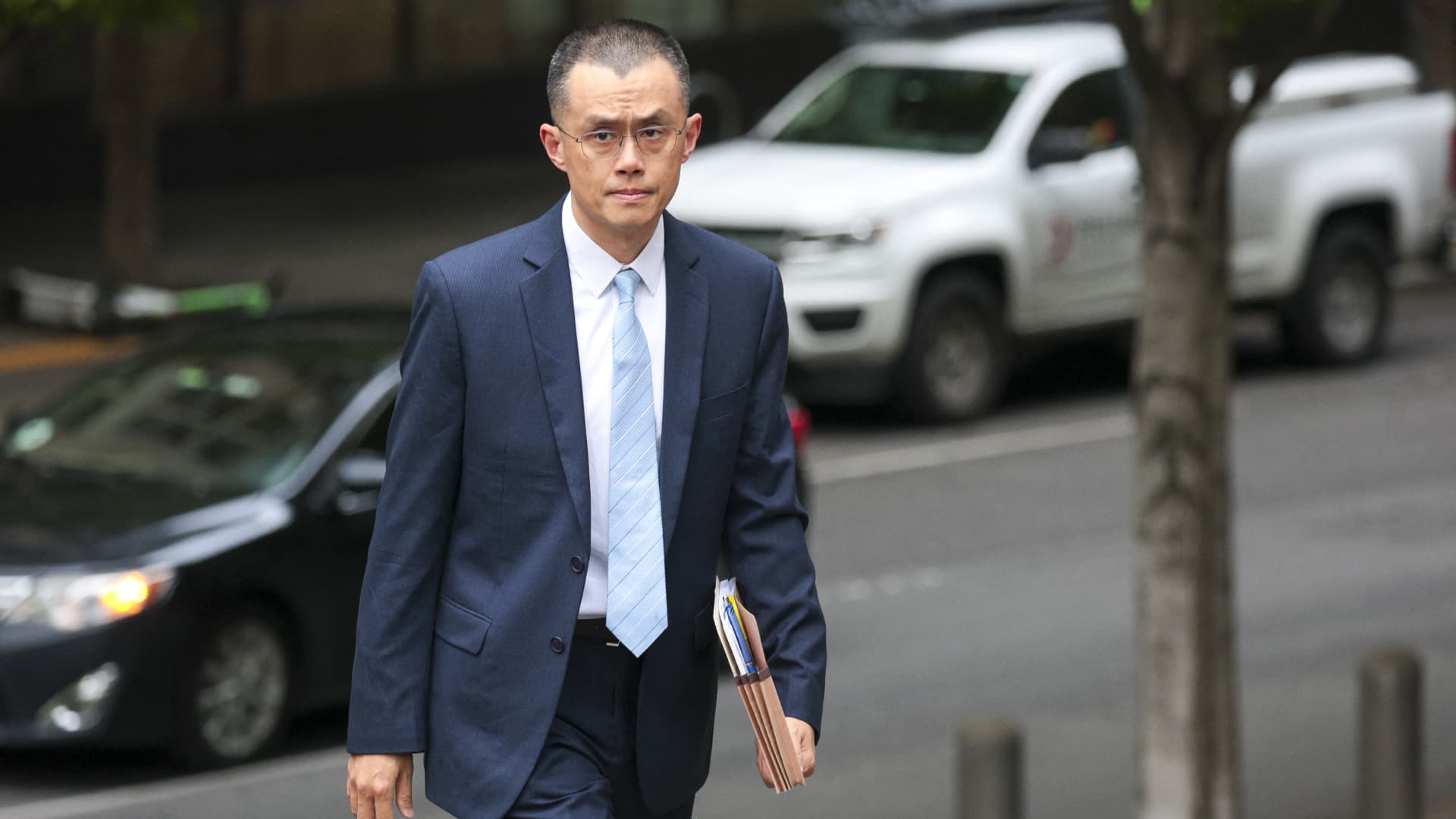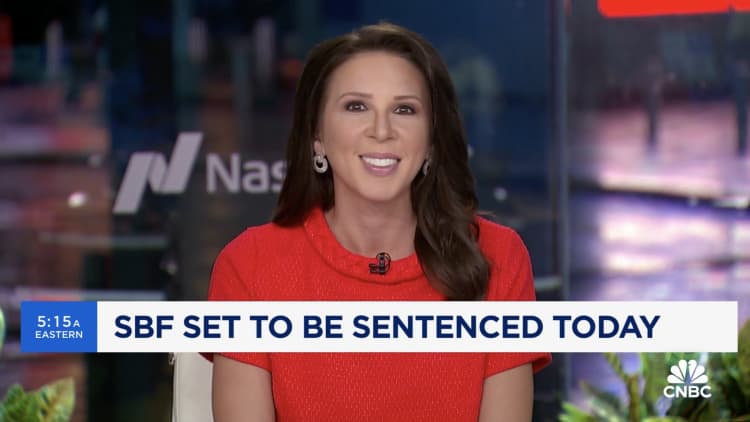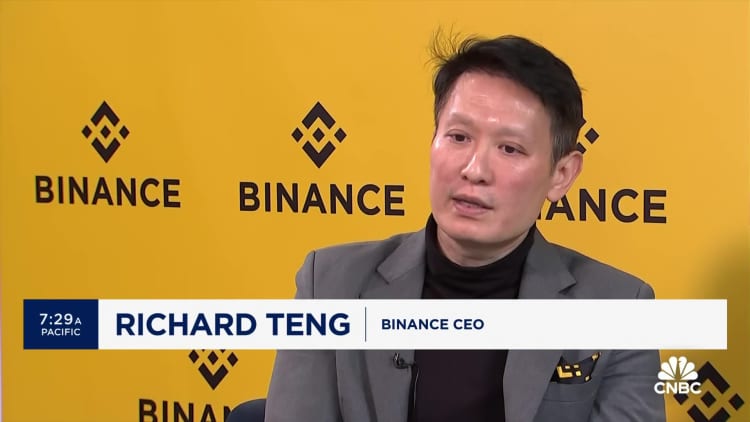

Changpeng Zhao, former chief executive officer of Binance, arrives at federal court in Seattle, Washington, US, on Tuesday, April 30, 2024.
David Ryder | Bloomberg | Getty Images
Binance’s billionaire founder Changpeng Zhao was sentenced to four months in prison on Tuesday, after pleading guilty to charges of enabling money laundering at his crypto exchange.
“You had the wherewithal, the finance capabilities, and the people power to make sure that every single regulation had to be complied with, and so you failed at that opportunity,” U.S. District Judge Richard Jones said to Zhao in a Seattle federal court, according to a Reuters report.
The sentence handed down to the former Binance chief was significantly less than the three years that federal prosecutors had been seeking for him. The defense had asked for five months of probation. The sentencing guidelines called for a prison term of 12 to 18 months.
“I’m sorry,” Zhao told the judge before receiving his sentence, per Reuters.
“I believe the first step of taking responsibility is to fully recognize the mistakes,” Zhao reportedly said earlier Tuesday in court. “Here I failed to implement an adequate anti-money laundering program… I realize now the seriousness of that mistake.”
In November, Zhao, commonly known as CZ, struck a deal with the U.S. government to resolve a multiyear investigation into Binance, the world’s largest cryptocurrency exchange. As part of the settlement, Zhao stepped down as the company’s CEO. Though he is no longer running the company, Zhao is widely reported to have an estimated 90% stake in Binance.
Zhao, who wore a dark navy suit with a light blue tie to court, is accused of willfully failing to implement an effective anti-money laundering program as required by the Bank Secrecy Act, and of allowing Binance to process transactions involving proceeds of unlawful activity, including between Americans and individuals in sanctions jurisdictions.
The U.S. ordered Binance to pay $4.3 billion in fines and forfeiture. Zhao agreed to pay a $50 million fine.
Binance has separately been sued by the U.S. Securities and Exchange Commission and the Commodity Futures Trading Commission over the alleged mishandling of customer assets and the operation of an illegal, unregistered exchange in the U.S.
The action against Binance and its founder was a joint effort by the Department of Justice, the CFTC and the Treasury Department, though the SEC was notably absent.
A Binance spokesperson said in a statement to CNBC that the crypto exchange is “proud of the culture of compliance, security, and transparency we have created over the past several years, and we look forward to building on that culture as we continue to evolve.”
Changpeng Zhao, former chief executive officer of Binance, arrives at federal court in Seattle, Washington, US, on Tuesday, April 30, 2024.
David Ryder | Bloomberg | Getty Images
The spokesperson said the company has made “considerable compliance enhancements,” including with regards to anti-money laundering detection and “hiring key compliance personnel.”
A lawyer for Zhao did not immediately respond to CNBC’s request for comment.
Prosecutors say Zhao violated U.S. law on an “unprecedented scale,” and that he had a “deliberate disregard” for Binance’s legal responsibilities.
In a memorandum on Apr. 23, prosecutors said that under Zhao’s control, Binance operated on a “Wild West” model.
“Zhao bet that he would not get caught, and that if he did, the consequences would not be as serious as the crime,” the memorandum stated. “But Zhao was caught, and now the Court will decide what price Zhao should pay for his crimes.”
Zhao has gotten off much easier than former crypto rival Sam Bankman-Fried, the founder and ex-CEO of FTX.
Bankman-Fried was sentenced to 25 years in prison for crimes connected to the operation of his crypto exchange. Unlike Zhao and the charges brought against Binance, Bankman-Fried’s bankrupt exchange faced allegations of fraud and misuse of customers funds.
Braden Perry, a former senior trial lawyer for the CFTC, said that behavior is typically viewed as more deceitful and financially damaging to a broader array of people than compliance failures.
“CZ’s case seems to focus on regulatory and compliance failures, while SBF’s case hinges on direct financial misconduct and deception,” continued Perry. “Compliance failures, while serious, might be seen as a failure of oversight rather than active malfeasance.”





